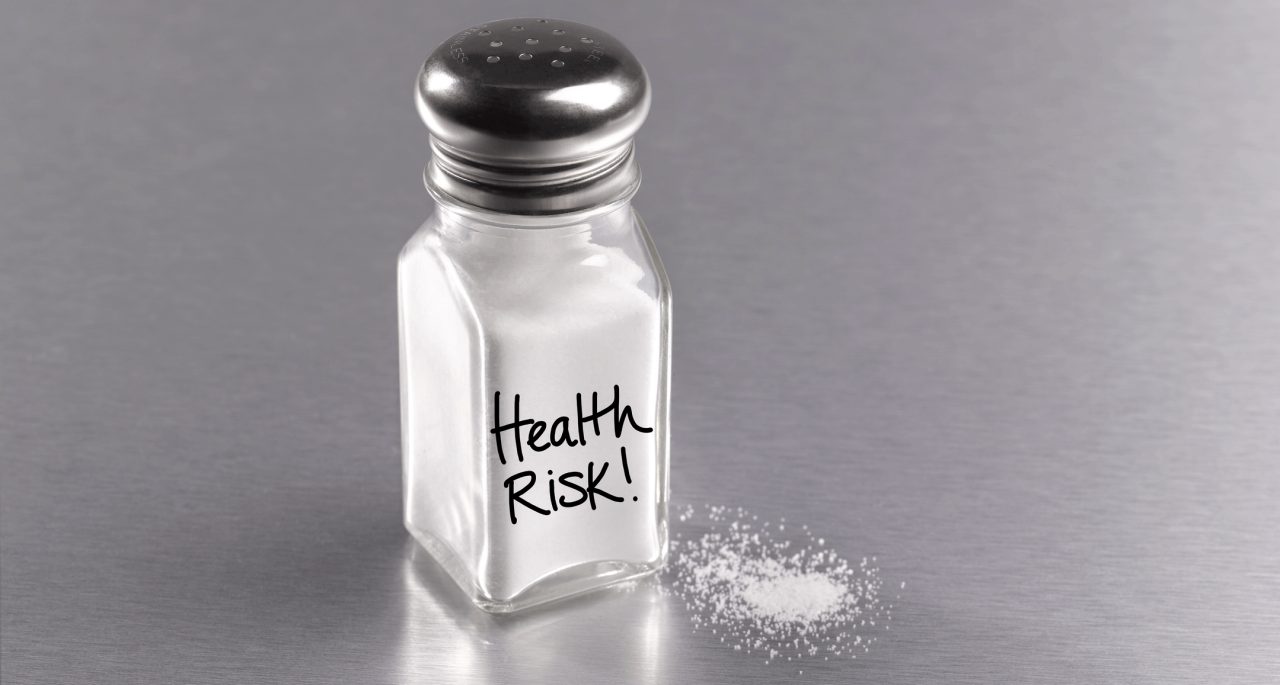Is Salt Really Bad for You?

Yes, it probably is. Evidence supports the idea of cutting back on salt to tame high blood pressure. Here’s what you should know.
If you have high blood pressure, your doctor probably advised you to ban the salt shaker and avoid high-salt foods. But does this sacrifice actually help lower high blood pressure? And are their other, undesirable, effects?
The most recent research backs up the old advice: cutting down on salt is a good strategy for people with hypertension because salt can contribute to their high blood pressure.
YOU MIGHT ALSO LIKE: What Causes High Blood Pressure?
Why do we like salt?
Sodium — an ion found in table salt — is a key mineral that affects blood pressure, fluid balance, and nerve signaling. We can’t generate sodium ourselves, so it must come from food. When your body is low on sodium, your brain triggers specific appetite signals. Low levels of sodium (hyponatremia) can also make you retain more water than your body needs, causing symptoms like headaches, fatigue, nausea, and dizziness.
On the other hand, if you eat a lot of salt, you’ve probably noticed that you become thirsty. Salt-detecting neurons in the mouth nudge you to drink.
The extra liquid helps to dilute any unneeded salt in your blood. Then you would urinate out the extra salt and water.
In this way your body seeks an ideal balance of salt.
What is the DASH diet?
Your doctor may have steered you to the DASH diet, named after a study called Dietary Approaches to Stop Hypertension. Developed to lower blood pressure without medication, it arose from research sponsored by the National Institutes of Health.
You’ll cut sodium from your food and add foods rich in nutrients like potassium, calcium, and magnesium
Some people see their blood pressure drop within two weeks. Over time, research suggests, your systolic measurement could drop by 8 to 14 points. You’ll be eating in a way that can also prevent osteoporosis, cancer, heart disease, stroke, and diabetes.
In the standard DASH diet, you can eat up to 2,300 mg of sodium a day. In a tougher version, the max is 1,500 mg of sodium a day. Either way, you’ll be eating less salt than most Americans do. The American Heart Association recommends 1,500 mg a day of sodium as an upper limit for all adults.
All DASH diets include whole grains, fruits, vegetables, and low-fat dairy products. You can eat some fish, poultry, and legumes, and a small amount of nuts and seeds a few times a week.
Red meat, sweets, and fats will be treats. So, you might have one egg, or one ounce of meat, trimming away skin and fat. You could have a tablespoon of sugar or jam, or half a cup of sorbet.
You’ll need to limit your alcohol consumption (it can increase blood pressure). Talk to your doctor about how caffeine affects you.
You’ll use sodium-free spices, skip salt when cooking, rinse canned foods, or buy versions labeled “no salt added," "sodium-free," "low sodium" or "very low sodium"
One teaspoon of table salt has 2,325 mg of sodium. Read labels — you may be shocked at how much salt shows up in processed foods.
Make changes gradually and forgive slip-ups, just go back to eating more healthily overall. Variety will help keep you from getting bored.
But does lowering salt fight hypertension?
The answer is yes, according to a separate study, also published this year, by an international team that evaluated 133 studies with more than 12,000 participants altogether. The team found that for every drop in salt measured by the concentration in urine over the previous day, both systolic and diastolic blood pressure dropped. This happened in both people with high blood pressure and people without an issue, but the systolic drop was greater in older people, non-white groups, and people who had higher baseline systolic numbers. In studies shorter than 15 days, the effect wasn’t as powerful, but after that the effect jumped up and stayed strong.
How does salt affect your weight?
One argument against cutting out salt is that you might find your metabolism slows down. You could gain weight eating the same amount of calories.
Why might that be?
A camel with no water in the desert breaks down the fat in its hump. In humans, we know that a starving body will burn its own fat and muscle for energy. Some scientists argue that a similar process happens on a high-salt diet. Like the camel, we might break down body fat. So on a low-salt diet, we might gain weight.
A trial reported in January 2020 tested the idea that salt triggers fat burning, concluding that, at least for DASH-dieters, lower salt levels doesn’t cause weight gain.
In the new trial, 412 adults with systolic blood pressure of 120 to 159 mm Hg and diastolic blood pressure of 80 to 95 mm Hg who were not taking medication to lower their blood pressure were randomly assigned to the DASH diet or a control diet. On their assigned diet, participants spent four weeks on each of three salt regimes: either a low-salt diet at 1,150 mg a day, medium (2,300 mg), or high-salt (3,450 mg), which isn’t uncommon for Americans People on the control diet did gain weight as their salt intake increased, but not people following DASH.
Updated:
February 08, 2021
Reviewed By:
Janet O’Dell, RN